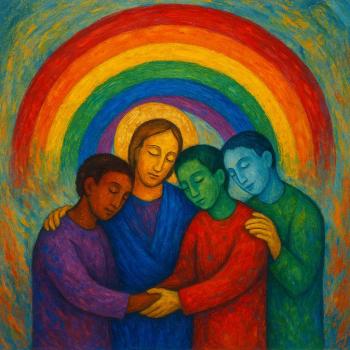As I was on vacation last week, I made a pact with myself to not work more than I wanted to. I set a limit to my writing to one blog post and in doing so, I did not get to write about Father’s Day. In this post Father’s Day blog, I want to reflect and build on what I have written in past posts about masculinity and role a man must play for his community.
I found two memes last week that I have been thinking about for this blog post. The first one from marainthemist offered these thoughts:
“My husband told our son, who was picking on his little sister, “it is your job as a future man to listen and respect people’s boundaries. You will often be bigger than others and it is unkind to use your size against them. She said stop. You will stop.”
The second one has been going around the internet and inspired an earlier post. It goes something like this:
“Masculinity isn’t toxic. The absence of it is. Weak men are abusive and spiteful. Strong men are protective and loving”
As I think about my work as a dad, the men who inspired me, the biggest question that I often come back to is “what does it mean to be a man?”
The Parable of the Lost Son
In considering this post, the cultural risks taken by the father in Jesus’ parable of the lost son were noteworthy. In this story, a younger son squanders his inheritance but is welcomed back by his father upon his return, representing themes of unconditional love and forgiveness. This parable illustrates repentance, redemption, and the joy of reconciliation.
What I find remarkable about this story are several points, the father in the heat of the day, lifting his robe so he can run better, runs after his son, disregarding several cultural rules. Let’s dive deeper in some of the symbolism in this passage.
This story reminds us that no matter how far we’ve wandered, God is always ready to welcome us back. If you’ve ever asked, are all sins forgiven? or does God forgive sinners?, this parable answers with a clear and compassionate yes. God’s mercy is not reserved for a select few; it’s offered freely to anyone willing to return.
I also find this story the way Jesus tells it and the cultural implications of some of the father in the story demonstrate later teachings such as the woman at the well, the story of the Good Samaritan and later teaching such as Galatians 3 that with God, there are no limitations on God’s love or who God will reach out to.
To summarize, God as father, God as a masculine figure does not show up and haughtily and arrogantly show up, He humbles himself, limits himself to the “least of these”. He is protective and loving.
Pride has no place
True strength lies not in dominating others but in the quiet, steady ability to lift them up, to listen, and to serve. The essence of masculinity, as seen through the lens of humility and love, is about embracing responsibility without arrogance and acknowledging that power finds its worth in protecting the vulnerable. This humility is not weakness but a recognition of the shared humanity that connects us all, a perspective that transcends pride and reflects the very nature of a God who stoops to meet us in our lowest moments.
Reflecting back on the father in the parable of the lost son shows us that strength is often revealed in vulnerability, as he casts aside societal norms to embrace his wayward child. Similarly, humility, as the counterbalance to pride, enables a man to act with purpose, finding fulfillment not in exerting dominance but in fostering mutual respect and love. This balance between humility and shared responsibility echoes throughout both personal relationships and broader societal roles, reminding us that the measure of greatness lies in how one uplifts and protects those entrusted to their care.
Uncle Ben had it Right All Along
Uncle Ben had it right all along, with “great power comes great responsibility” Potentially borrowed from the 1st century BC parable of the Sword of Damocles and the medieval principle of noblesse oblige—is that power cannot simply be enjoyed for its privileges alone but necessarily makes its holders morally responsible both for what they choose to do with it and for what they fail to do with it.
What Spider Man would later learn is that he alone could not save the world. He used his powers in combination with the other Avengers to defeat Thanos. Men not only need each other, but also, they need their family, their wives or their husbands. Marriage is a team effort. The man alone cannot be the protector, provider and presider, it has to be a team effort. Mutuality is what makes a relationship/marriage work.












